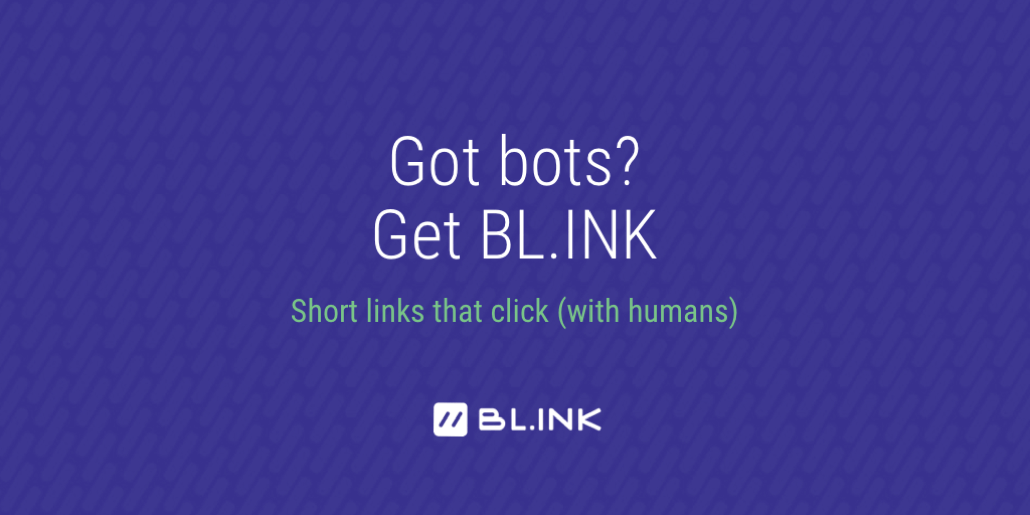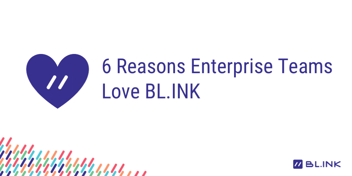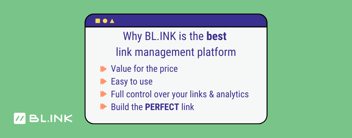
Listen to this blog
Got Bots? Think BL.INK
Interesting NPR/NYTimes piece today on bots in Twitter. Twitter is vowing to “clean up” a problem that is widely acknowledged but hard to quantify and resolve.
Bots are also a problem with some legacy short link providers. Digital marketers and advertisers may have false hope that their links are generating lots of clicks when in fact the clicks aren’t human clicks. The resulting false data can be toxic because it can lead to bad business decisions. That’s why BL.INK customers often rely on BL.INK metrics to validate click data from third-party marketing platforms.
Since BL.INK filters out automated click activity from known bots and server farms, BL.INK customers can feel confident that the clicks they generate are coming from humans – not bots.
There’s another, more insidious problem – data privacy. Short link management solutions, such as BL.INK, maintain rigorous privacy restrictions regarding link data. That’s important for multiple reasons: digital marketers can feel safe that their data is secure, private, and compliant. With new data privacy laws from GDPR in Europe and legislation in California, everyone should double- and triple-check the policies of their marketing automation providers.
So if you’re worried about bots on Twitter, you should also worry about bots in your short links – unless you’re using BL.INK.



